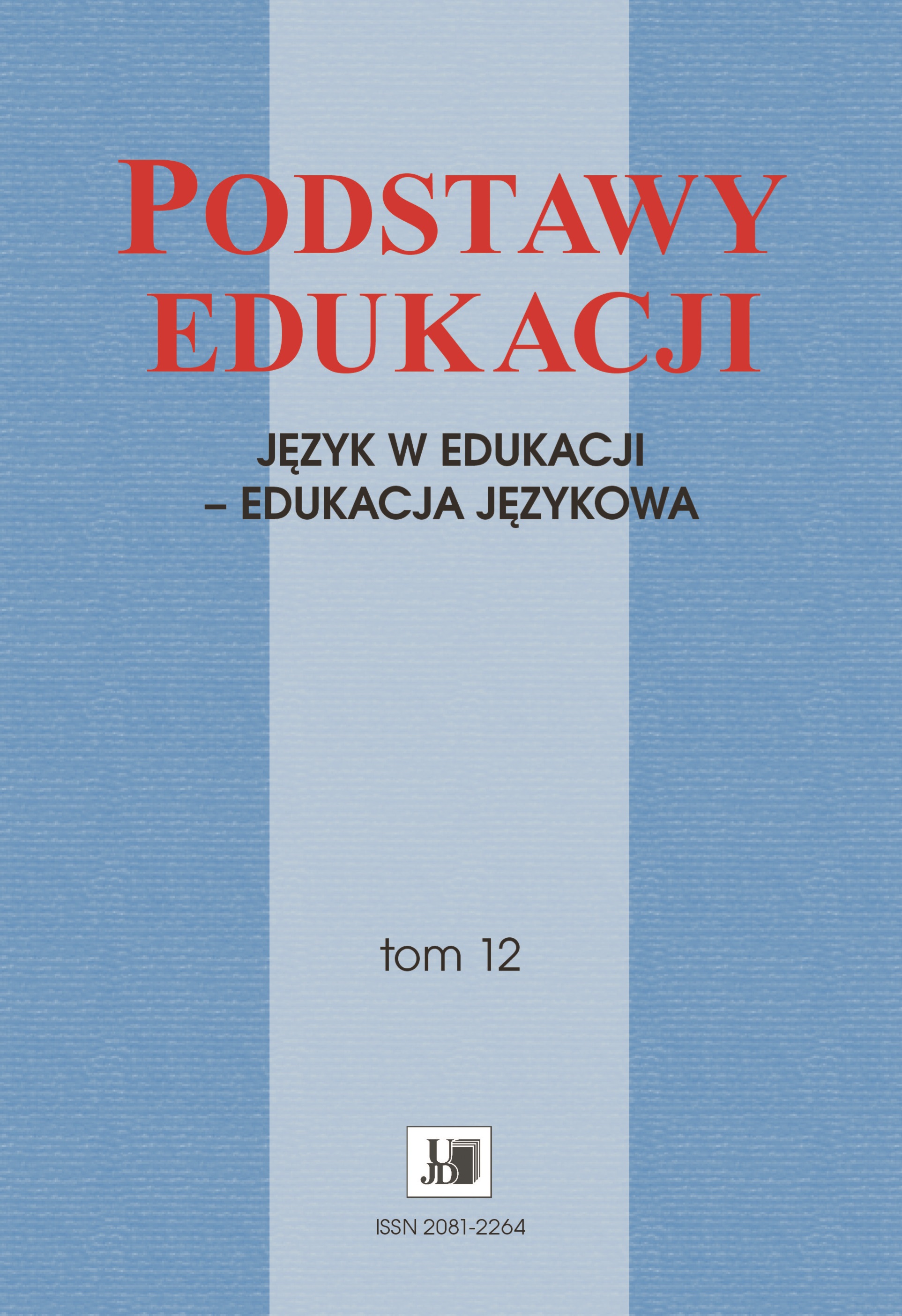Język rozważań Sebastiana Petrycego z Pilzna o wychowaniu i edukacji bez kobiet i nie dla kobiet
The language of reflections of Sebastian Petrycy of Pilsen on upbringing and education without women, and not for women
Author(s): Agnieszka Michalkiewicz-GorolSubject(s): Social Sciences, Language studies, Language and Literature Studies, Education, History of Education
Published by: Uniwersytet Jana Długosza w Częstochowie
Keywords: Sebastian Petrycy of Pilsen;upbringing of women;education of women;Polish Renaissance;language of pedagogical concept
Summary/Abstract: This monograph is an attempt to evoke the figure of Sebastian Petrycy of Pilsen, a Polish Renaissance physician, philosopher, Aristotelik, poet and, above all, the creator of the autonomous pedagogical and philosophical concept, in the context of analysing source texts in which the author addresses issues related to the upbringing and education of women. Petrycy’s pedagogical judgments contained in the “Przydatki” to Aristotle’s writings regarding mental, moral and physical education of women should definitely be regarded as a direct continuation of the views on this issue by Aristotle and Konrad of Byczyna. The outstanding representative of the Polish Renaissance should, as it seems, know, even briefly, fragments of the texts of Quintilian, Saint. Jerome or Erasmus of Rotterdam dedicated to the education of women. Nowhere, however, in any part of Przydatki, one can point to even a hint of Petrycy’s inspiration with “Education of the speaker”, “Letter to Let” or “Conversation of the Abbot with Magdala”. Plato did not find his place at the reception of the ancient thought of upbringing women in the pedagogical concept of Sebastian Petrycy of Pilsen, either. It is Aristotle who, also in the language layer, delineates the shape and quality of the women’s world, presented by the Renaissance author of the first pedagogical and philosophical concept created for the Polish recipient.
Journal: Podstawy Edukacji
- Issue Year: 2019
- Issue No: 12
- Page Range: 95-107
- Page Count: 13
- Language: Polish

